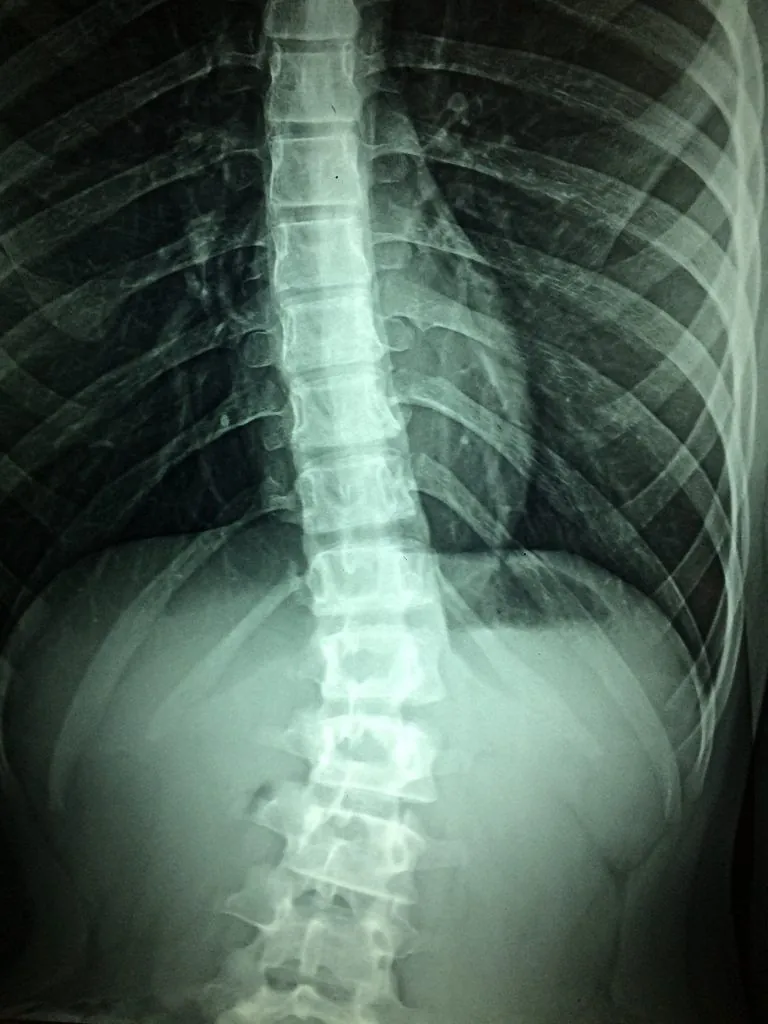Dysphagia Post Cervical Spinal Fusion
Severe injury to the neck may require a surgical intervention called cervical spinal fusion. This surgery joins damaged vertebrae in the cervical spine. How this surgery is accomplished depends on your particular injury and the surgeon. The cervical spinal fusion may entail one or a more of the following scenarios:
- Removal of an entire cervical vertebra and then fusing the spine.
- Removal of a single disc with fusion to the adjoining vertebrae.
- Insertion of metal plates that screw into the bones and joins together two neighboring vertebrae.
- Insertion of metal implants to hold two adjacent vertebrae until new bone growth occurs connecting them.
- Bone graft – bone can be removed from your body, a bone graft may be obtained from a bone bank, or a bone graft substitute may be used. The surgeon uses the bone graft to make a bridge between the damaged cervical vertebrae. The bone graft stimulates your body to produce its own bone growth in the neck which in time would fuse the vertebrae together.
Whatever, the scenario you and your surgeon elect to proceed forward with, a cervical spine fusion will require that an incision is made to the front or back of the neck. Since this surgery occurs at the neck, many patients, particularly females, report dysphagia post cervical spinal fusion. Dysphagia after the operation can be due to changes to the muscles we use in our neck for swallowing. After the surgery, a person may need to build up or train the strength and coordination of the muscles used for eating and swallowing.
What is Dysphagia?
Put simply, it is difficulty swallowing. Dysphagia can cause different reactions in different people but can include:
- Inability to swallow
- Regurgitation of food
- Pain while swallowing
- Heartburn
- Gagging or coughing while swallowing
- Persistent bouts of coughing and gagging
- Persistent desire to clear throat while eating
- Difficulty chewing
- GERD – stomach acid flowing into the throat
- The sensation that food stuck is stuck your chest, at the back of your throat or behind the sternum
If you experience these symptoms post cervical spinal fusion, seek the advice of your surgeon and/or medical provider. You will likely be provided with some educational materials to help your body adjust to the changes your nerves and muscles are experiencing when swallowing. Until your dysphagia is controlled or resolved, you may be provided with educational materials or be provided with instruction regarding diet modification, swallowing techniques. Exercises to retrain the muscles and nerves that are used to swallow will be provided. You may be referred to a therapist who can help a person learn to swallow and breath as well as learn neck posture techniques that aid those with dysphagia.
Other Testings
It is also likely you will be asked to submit to diagnostic testing that may include an x-ray with barium contrast. The barium solution will help the doctor assess your muscle activity and the health of your esophagus. This will likely be done to rule out the dysphagia resulting from something other than the recent cervical fusion surgery. A swallowing study may be done where you swallow foods coated in barium. Images are taken as the food travels through the mouth and into the throat. The photos obtained helps the physician understand if the issue lies in the mouth muscles or the throat muscles. An endoscope may also be used – essentially a thin, lighted instrument – allowing the physician to see inside your esophagus. If you have GERD or heartburn associated with the dysphagia, medications may be provided to reduce the build-up of stomach acid.
While dysphagia is unpleasant and can be temporarily downright scary, the benefits of the cervical spine fusion often outweigh the complication of dysphagia. Someone who is having a spinal fusion at the neck was likely in such severe pain their day to day life was severely impaired.
Why You Need a Personal Injury Lawyer
Every year I meet people who undergo surgical interventions to recuperate from their injuries and am familiar with the complications these surgeries can cause my clients. I’d like to help you recover from the traumatic injuries you sustained following a severe accident. If your injuries were severe, likely, we would be handling your claim for some time as you recuperate. You should feel comfortable with the personal injury lawyer and staff employed there. One way to get an idea of the reputation of lawyer and staff is to do some research. If you sustained neck injuries that are so severe that you obtained a cervical fusion, remember that the medical bills for any additional therapy, medication, education and diagnostic testing needed to recuperate from a complication such as dysphagia should be included as part of your claim against the responsible party.
Sacramento Personal Injury Lawyers
I’m Ed Smith, a Sacramento Personal Injury Lawyer. If you have sustained an injury due to the negligence of someone else, please feel free to call this office to discuss your potential claim. I can be reached at (916) 921-6400 or (800) 404-5400.
I encourage people to learn more about my personal injury practice and my team on Google, Avvo (an attorney rating website), Yelp and from my site directly.
I am a proud member of the Million Dollar Advocates.
Learn how we resolved prior Verdicts and Settlements cases.
Photo by pexels.com

